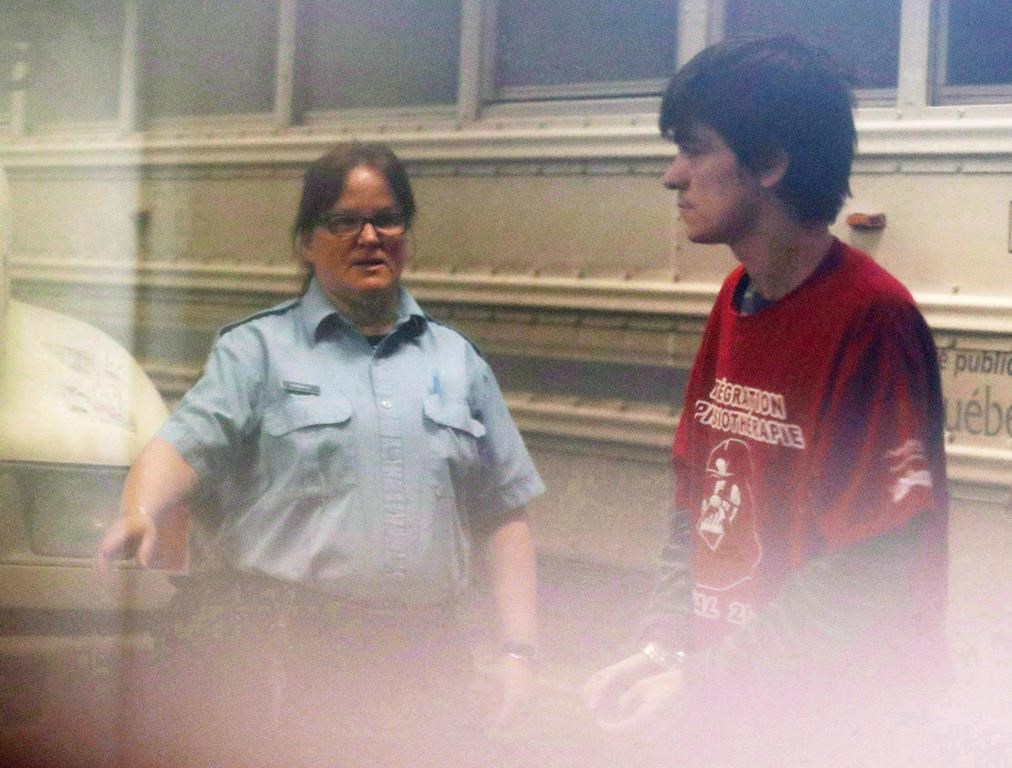The Supreme Court of Canada will review the sentencing of Alexandre Bissonnette, the man who murdered six people during evening prayers at a mosque in the province’s capital in 2017.

The high court announced its decision Thursday to allow the appeal brought forth by Quebec’s Directeur des poursuites criminelles et pénales (DPCP) to go forward.
“Out of respect for the ongoing legal proceedings, we cannot comment further on this matter at this time,” DPCP spokesperson Audrey-Roy Cloutier wrote on Twitter.
READ MORE: Quebec to seek leave to appeal mosque shooter’s sentence at Supreme Court
Bissonnette pleaded guilty to six counts of first-degree murder and six of attempted murder in 2018. He was then sentenced to life in prison with no possibility of parole for 40 years in February 2019.
In November 2020, Quebec’s appeal court ruled that Bissonnette will be eligible to apply for parole after serving 25 years.
It declared that a provision of the Criminal Code that allows for life sentences to be served consecutively is unconstitutional.
At the time, Quebec’s top court agreed with Justice François Huot’s ruling that consecutive sentencing violated the charter, but decided the lower court judge erred in granting the killer a 40-year sentence and instead opted for 25 years.
- Life in the forest: How Stanley Park’s longest resident survived a changing landscape
- ‘They knew’: Victims of sexual abuse by Ontario youth leader sue Anglican Church
- Carbon rebate labelling in bank deposits fuelling confusion, minister says
- Buzz kill? Gen Z less interested in coffee than older Canadians, survey shows
READ MORE: Quebec City mosque shooter’s 40-year sentence unconstitutional, province’s top court rules
Those who were killed at the mosque were Mamadou Tanou Barry, 42; Abdelkrim Hassane, 41; Khaled Belkacemi, 60; Aboubaker Thabti, 44; Azzeddine Soufiane, 57; and Ibrahima Barry, 39. In addition to the men killed, five others were struck by bullets.
In a statement, the Quebec City mosque where the shooting spree took place welcomed the Supreme Court’s decision to hear the appeal.
“We welcome with relief the Supreme Court’s decision to accept the case presented by the Attorney General of Quebec and the Director of Criminal and Penal Prosecutions,” the Quebec City Islamic Cultural Centre’s board said.
“We reiterate our confidence in our justice system and its players.”

— With files from The Canadian Press




Comments